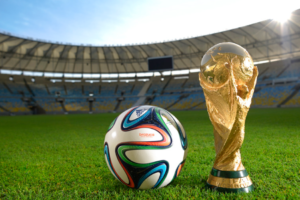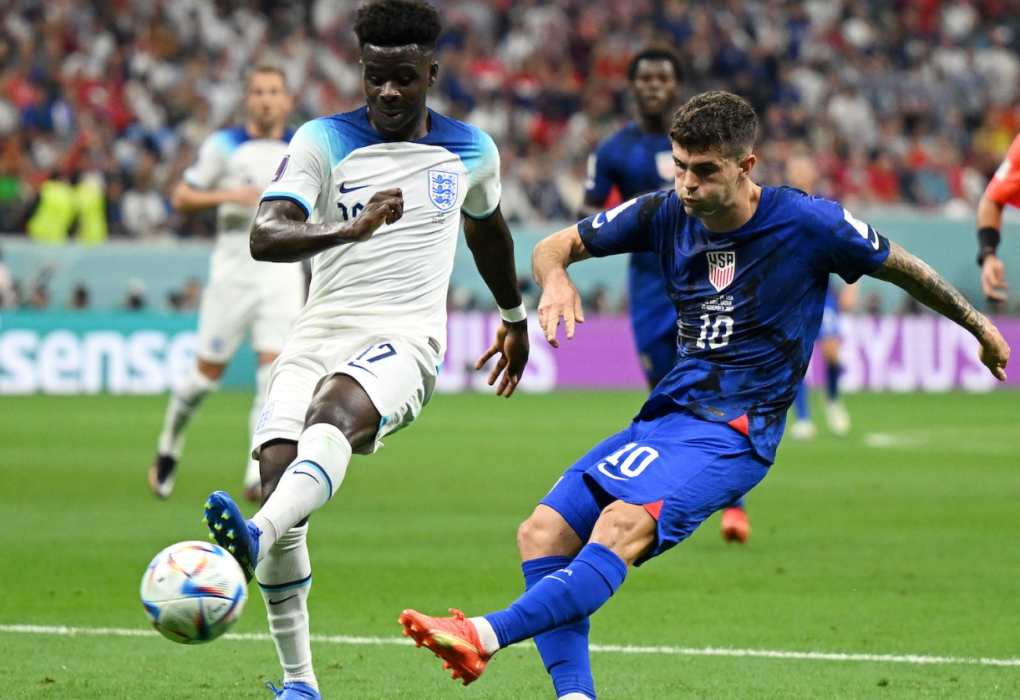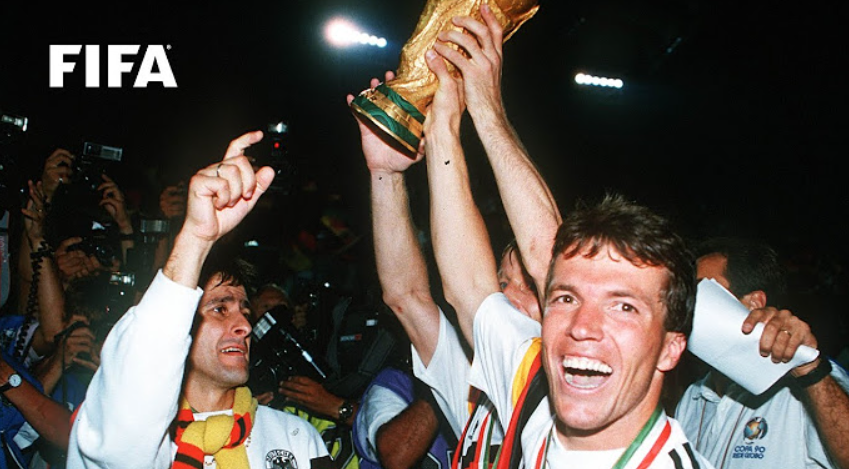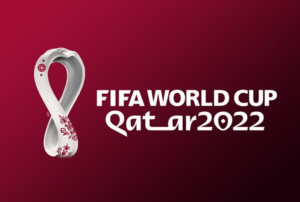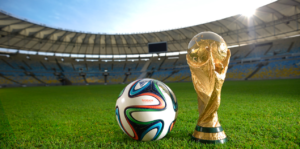FIFA, also known as the Fédération Internationale de Football Association, is the governing body for the world’s most popular sport – football. Established in 1904, FIFA’s mission is to develop and promote the game globally, ensuring its growth and integrity.
With 211 member associations, FIFA organizes and oversees international competitions, including the prestigious FIFA World Cup, which captivates billions of fans every four years. The tournament brings nations together, ignites national pride, and showcases the incredible talent and skills of footballers from all corners of the globe.
FIFA’s responsibilities extend beyond organizing competitions. The organization also sets the rules of the game, known as the Laws of the Game, ensuring fair play and consistency worldwide. Additionally, FIFA invests in grassroots development programs, providing support and resources to member associations, particularly in developing nations, to nurture talent and foster football’s growth at all levels.
FIFA’s commitment to inclusivity is evident through their efforts to promote women’s football. The Women’s World Cup has gained immense popularity, with increasing support and recognition for female athletes. FIFA actively works towards gender equality, empowering women to participate, coach, and lead in the sport.
Moreover, FIFA strives to uphold ethical standards and integrity within football. They enforce strict regulations to combat match-fixing, doping, and other forms of corruption, safeguarding the game’s authenticity and spirit.
In recent years, FIFA has also prioritized sustainability and social responsibility, aiming to minimize the environmental impact of football events and leave a positive legacy in host nations.
In conclusion, FIFA plays a pivotal role in shaping the world of football. Through organizing international tournaments, establishing global standards, supporting grassroots development, and promoting inclusivity, FIFA continues to inspire generations, uniting diverse cultures through the universal language of the beautiful game.
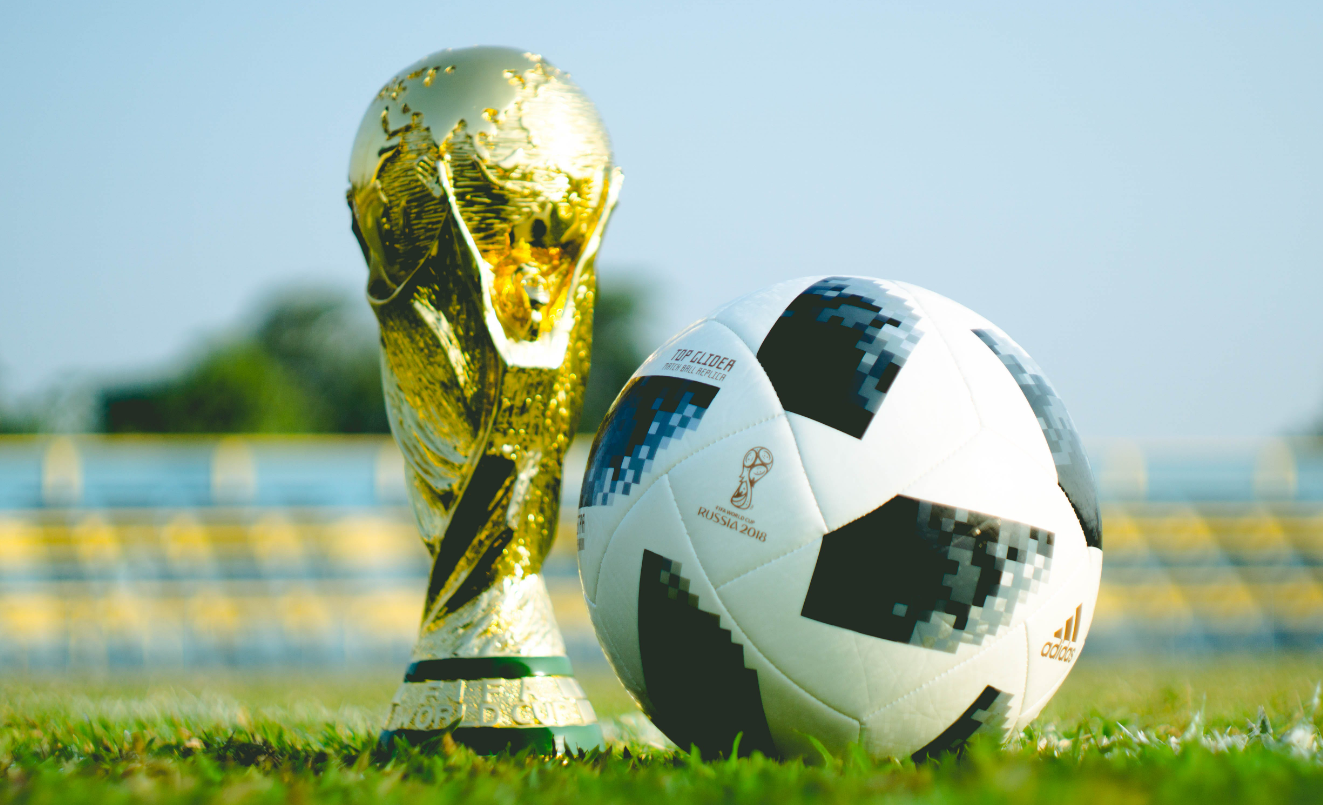
History of FIFA
The FIFA (Fédération Internationale de Football Association) is an international governing body for the sport of football, which has a rich and intriguing history that spans over a century. Founded in 1904, FIFA has played a pivotal role in the development and promotion of football worldwide.
The origins of FIFA can be traced back to a meeting held in Paris, France, where representatives from seven countries came together to establish an international football organization. The primary objective was to create a unified body that would oversee and regulate the game on a global scale. From its humble beginnings, FIFA has grown exponentially, and today it boasts a membership of 211 national football associations, making it one of the most influential sports organizations in the world.
In its early years, FIFA faced numerous challenges and obstacles. However, its determination and commitment to the sport allowed it to overcome these hurdles and emerge as a powerful entity. One of its significant achievements came in 1930 when FIFA organized the very first World Cup tournament in Uruguay. This event marked a turning point in football history, as it brought together teams from different nations to compete on a global stage. The success of the tournament laid the foundation for future World Cups, which would go on to become the most-watched and celebrated sporting event in the world.
Over the years, FIFA has introduced several groundbreaking initiatives and programs to enhance the sport. One such example is the establishment of continental confederations, such as UEFA (Union of European Football Associations) and CONMEBOL (South American Football Confederation). These confederations aim to promote football at a regional level, organizing tournaments and competitions that bring together teams from respective continents. Through these efforts, FIFA has fostered a sense of unity and camaraderie among football-playing nations, strengthening the sport’s worldwide appeal.
FIFA’s commitment to the development of football also extends beyond the professional level. The organization has implemented various grassroots programs that aim to popularize the sport among young children and promote its values of teamwork, discipline, and fair play. These programs provide aspiring young players with the opportunity to learn and grow in a supportive environment, nurturing the next generation of football stars.
However, FIFA’s journey has not been without its share of controversies. The organization has faced criticism for issues relating to governance and transparency. Nevertheless, FIFA has taken steps to address these concerns, introducing reforms and regulations to ensure greater accountability and integrity within the sport.
In recent years, FIFA has placed an increased emphasis on inclusivity and diversity in football. It has actively promoted women’s football, organizing tournaments such as the Women’s World Cup and implementing initiatives to encourage female participation at all levels. This commitment to gender equality has helped to break down barriers and pave the way for a more inclusive football community.
As FIFA continues to evolve, it remains at the forefront of the global football landscape. Its influence extends far beyond the field, shaping the way the sport is played, governed, and enjoyed by millions around the world. With its rich history and ongoing commitment to the game, FIFA is poised to continue leading football into the future, ensuring its enduring popularity and significance for generations to come.
FIFA Tournaments
FIFA Tournaments: Celebrating the Beautiful Game
Football, also known as soccer in some parts of the world, has undoubtedly become the most popular sport on the planet. Its universal appeal and ability to transcend cultural boundaries have made it a true global phenomenon. And at the heart of this football frenzy lies the prestigious FIFA tournaments, where teams from all corners of the globe come together to battle it out for ultimate glory.
FIFA, or the Fédération Internationale de Football Association, is the governing body of international football. Founded in 1904, FIFA has been instrumental in organizing and promoting football worldwide. However, it is their flagship tournaments that truly captivate the imagination of millions of football fans.
The FIFA World Cup, held every four years, is undoubtedly the pinnacle of football competitions. It brings together teams from around the world, showcasing the very best talent, skill, and passion that this beautiful game has to offer. The tournament has a long and storied history, with each edition leaving an indelible mark on the sport’s annals.
From the inaugural tournament in 1930 to the most recent edition in 2018, the World Cup has seen unforgettable moments that have ingrained themselves in the collective memory of football fans. The “Hand of God” goal by Diego Maradona in 1986, the stunning solo run by Diego Forlán in 2010, or the record-breaking goal haul by Just Fontaine in 1958 – these are just a few examples of the magic that has unfolded on the World Cup stage.
In addition to the World Cup, FIFA also organizes other prestigious tournaments that showcase different age groups and regions. The FIFA Women’s World Cup, first held in 1991, has played an instrumental role in the growth and popularity of women’s football. The tournament has allowed female players to shine on a global stage, proving that football is indeed a game for all.
FIFA also organizes continental championships, such as the UEFA European Championship, the Copa América, the Africa Cup of Nations, and many others. These tournaments offer teams the chance to compete against their regional rivals, creating fierce rivalries and unforgettable matches.
The impact of FIFA tournaments extends far beyond the pitch. These events bring people together, bridging cultural divides and fostering a sense of unity among nations. The excitement and fervor that surround these tournaments are unparalleled, with fans from all walks of life coming together to cheer on their favorite teams.
The economic impact of FIFA tournaments should not be overlooked either. Host countries experience a surge in tourism, infrastructure development, and increased business opportunities. The tournament provides a platform for nations to showcase their cultural heritage, as visitors from around the globe immerse themselves in the local traditions and festivities.
However, the success of FIFA tournaments is not without its challenges. Ensuring fair play, combating racism and discrimination, and maintaining the integrity of the sport are ongoing endeavors for FIFA. The organization continually works towards implementing measures to promote inclusivity, eradicate corruption, and enhance the overall football experience for players and fans alike.
In conclusion, FIFA tournaments are the pinnacle of football excellence and a celebration of the beautiful game. From the iconic World Cup to regional championships, these events captivate the hearts and minds of millions. They unite nations, inspire generations, and leave an indelible mark on the world of football. As the tournaments continue to evolve, FIFA’s commitment to promoting the sport’s values and fostering its growth remains unwavering.

FIFA Governance
The governance of FIFA, the international governing body of football, has long been a subject of scrutiny and debate. The organization, responsible for overseeing the world’s most popular sport, has faced numerous challenges in managing its affairs effectively. With its mission to promote the game of football globally, FIFA’s governance structure plays a crucial role in ensuring fair play, transparency, and the growth of the sport.
At the heart of FIFA’s governance is the principle of accountability. Through its various committees and decision-making bodies, FIFA strives to uphold the values of integrity and ethical conduct. Transparency is one of the key pillars of FIFA’s governance, as it aims to provide a clear and open framework for its operations. By establishing codes of conduct and promoting good governance practices, FIFA seeks to maintain the trust and confidence of its stakeholders, including players, fans, and national associations.
To ensure effective governance, FIFA has established a robust system of checks and balances. The organization is governed by a Congress, which consists of representatives from member associations around the world. This democratic structure allows for the fair representation of all stakeholders in decision-making processes. Through regular meetings and consultations, FIFA ensures that the voices of its members are heard, and that decisions are made collectively.
FIFA’s Executive Committee, consisting of elected officials, holds the responsibility of implementing the decisions made by the Congress. This body plays a crucial role in shaping the policies and strategies of FIFA, and in overseeing the day-to-day operations of the organization. By adhering to the principles of good governance, the Executive Committee ensures that FIFA remains accountable and transparent in its actions.
Another important aspect of FIFA’s governance is its commitment to inclusivity and diversity. The organization recognizes the importance of promoting gender equality and equal opportunities for all. Through initiatives such as the FIFA Women’s World Cup and the development of women’s football programs, FIFA aims to create a more inclusive and diverse football community. By fostering an environment that values and respects diversity, FIFA enhances its governance structure and strengthens its ability to make decisions that benefit the entire football community.
In addition to its internal governance mechanisms, FIFA also collaborates with external organizations to ensure the integrity of the sport. Through partnerships with international bodies like the World Anti-Doping Agency (WADA) and Interpol, FIFA works to combat issues such as match-fixing, doping, and corruption. By aligning with these organizations, FIFA demonstrates its commitment to upholding the highest standards of governance and fair play.
While FIFA has made significant progress in improving its governance structure, challenges still remain. The organization continues to face criticism and scrutiny, particularly in relation to issues such as financial transparency and the bidding process for hosting major tournaments. FIFA acknowledges the need for ongoing reforms and has implemented measures to address these concerns. By learning from past mistakes and embracing a culture of continuous improvement, FIFA strives to enhance its governance practices and regain the trust of its stakeholders.
In conclusion, the governance of FIFA is a complex and multifaceted endeavor. Through its commitment to transparency, accountability, inclusivity, and collaboration, FIFA aims to uphold the highest standards of governance in the world of football. While challenges persist, the organization remains steadfast in its pursuit of fair play and the promotion of the beautiful game. By fostering a culture of good governance, FIFA ensures that football continues to inspire and unite people around the globe.
FIFA Programs and Initiatives
FIFA’s Programs and Initiatives: Fostering Growth and Development in Football
FIFA, the international governing body for football, has long been committed to promoting the growth and development of the sport across the globe. Through its various programs and initiatives, FIFA aims to unite people, inspire communities, and foster positive change through the power of football. These efforts have not only impacted the game itself but have also contributed to social, economic, and educational advancements in numerous countries.
One of FIFA’s most prominent initiatives is the FIFA Forward program. Launched in 2016, this program aims to provide financial assistance and support to member associations, enabling them to develop and enhance football infrastructure, promote grassroots participation, and improve the overall quality of the game. By allocating funds to member associations, FIFA aims to create a level playing field and ensure that nations with limited resources have equal opportunities to develop their footballing potential.
The FIFA Forward program has already made a significant impact on the global football landscape. Through its funding, member associations have been able to construct and upgrade stadiums, training facilities, and technical centers, thus improving the overall infrastructure for the game. This, in turn, has led to the hosting of major tournaments in countries that previously lacked the necessary facilities, providing a platform for economic growth and tourism.
Furthermore, FIFA has recognized the importance of women’s football and has placed a strong emphasis on promoting gender equality within the sport. The FIFA Women’s Development Program aims to empower women through football by providing support for grassroots initiatives, coach education, and player development. By investing in women’s football, FIFA is not only fostering inclusivity but also creating more opportunities for talented female athletes worldwide.
In addition to fostering development through financial assistance, FIFA also runs a range of educational programs. The FIFA Football for Schools program, for example, focuses on integrating football into the education system, using the sport as a tool to teach important values such as teamwork, respect, and fair play. By combining physical activity with educational content, FIFA aims to promote a healthy and active lifestyle among young people while instilling essential life skills.
FIFA also places great importance on social responsibility and has developed initiatives to address pressing global issues. The FIFA Foundation, established in 2018, strives to support disadvantaged communities and individuals around the world. Through various projects, the foundation aims to use the power of football to tackle social challenges such as poverty, inequality, and discrimination. By harnessing the popularity of the sport, FIFA is able to raise awareness and inspire positive change on a global scale.
Furthermore, FIFA has implemented measures to ensure the integrity and fairness of the game. The FIFA Guardians Program, for example, focuses on safeguarding children and young players involved in football, aiming to protect them from any form of abuse or exploitation. Through education and awareness campaigns, FIFA aims to create a safe and inclusive environment for all participants, emphasizing the importance of respect and well-being.
In conclusion, FIFA’s programs and initiatives serve as a testament to its commitment to the growth and development of football. By investing in infrastructure, promoting gender equality, providing educational opportunities, and addressing social issues, FIFA continues to use the power of football to create positive change around the world. Through these efforts, FIFA not only enhances the game itself but also contributes to broader social, economic, and educational advancements, making football a force for good in society.
FIFA Rankings and Awards
The FIFA Rankings and Awards: A Celebration of Football Excellence
In the realm of football, the FIFA Rankings and Awards serve as a benchmark for excellence, a testament to the talent and dedication displayed by teams and individuals around the world. These rankings and awards provide a platform for recognition, celebration, and healthy competition within the sport. Let us delve into the significance of these prestigious accolades and how they contribute to the global football community.
The FIFA Rankings, first introduced in 1993, are a system that evaluates national teams based on their performance in international matches. This comprehensive ranking system takes into account various factors such as the strength of opponents, the importance of the match, and the overall performance of the team. The rankings provide a valuable tool for assessing a team’s progress and comparing it to other national sides. Moreover, they offer an objective measure of a nation’s footballing prowess, instilling a sense of pride and motivation among players, coaches, and fans.
These rankings not only serve as a point of reference but also play a crucial role in determining the seeding for international tournaments. By using the FIFA Rankings, teams are placed in groups based on their standings, ensuring a fair and competitive environment during major competitions like the FIFA World Cup. This ensures that the most deserving teams face opponents of similar caliber, resulting in thrilling matches and showcasing the highest level of footballing talent.
In addition to the rankings, FIFA also presents a range of awards to honor outstanding individuals within the football community. The most prestigious of these accolades is the FIFA Ballon d’Or, which recognizes the best male and female footballers in the world. This award, voted on by national team captains, coaches, and selected journalists, showcases the exceptional talent, skill, and dedication exhibited by the winners. The FIFA Ballon d’Or serves as a source of inspiration for aspiring players worldwide, demonstrating that hard work, perseverance, and talent can lead to the highest level of recognition within the sport.
Furthermore, FIFA also presents awards such as the Best FIFA Men’s Coach, the Best FIFA Women’s Coach, and the FIFA Fair Play Award. These awards acknowledge the contributions of coaches who have guided their teams to success and exemplify the values of fair play and sportsmanship. By recognizing the efforts of these individuals, FIFA encourages others to follow in their footsteps, fostering a culture of excellence and integrity within the football community.
The FIFA Rankings and Awards are not merely a source of recognition; they also have a significant impact on the global football landscape. The rankings influence the allocation of continental qualification slots for international tournaments, ensuring fair representation for different regions. This inclusivity allows teams from diverse backgrounds to compete on the global stage, promoting the growth and development of football worldwide.
Moreover, the awards and rankings generate immense excitement among fans, igniting passionate debates and discussions. The FIFA Rankings spark conversations about which team deserves the top spot and who the true footballing powerhouses are. Similarly, the anticipation surrounding the FIFA Ballon d’Or and other individual awards fuels excitement within the footballing community, as fans eagerly await the announcement of the winners.
In conclusion, the FIFA Rankings and Awards are vital components of the football world, providing a comprehensive evaluation of national teams and honoring exceptional individuals. These accolades inspire players, coaches, and fans alike, fostering healthy competition, and promoting the growth of the sport. With their global impact and ability to unite football enthusiasts worldwide, the FIFA Rankings and Awards continue to play a pivotal role in celebrating the true essence of the beautiful game.
FIFA Partnerships and Sponsorships
FIFA, the international governing body for football, has long been associated with partnerships and sponsorships that have played a crucial role in the development and growth of the sport. These collaborations have not only provided financial support but have also helped in promoting the game globally, creating opportunities for players, and enhancing the overall fan experience.
One of the most prominent partnerships in FIFA’s history is with The Coca-Cola Company. This association dates back to 1974 when Coca-Cola became an official sponsor of the FIFA World Cup. Since then, the brand has been an integral part of the tournament, providing refreshments to players, fans, and officials alike. The partnership has extended beyond the World Cup, with Coca-Cola also sponsoring various FIFA events and initiatives, such as the FIFA U-20 World Cup and the FIFA Women’s World Cup. This collaboration has not only strengthened FIFA’s financial standing but has also contributed to the overall success and popularity of these tournaments.
Another significant partnership that FIFA has forged is with Adidas. The sportswear giant has been an official sponsor of FIFA since 1970, providing high-quality football equipment and apparel for players and officials. Adidas has consistently ensured that the sport’s top athletes are equipped with cutting-edge technology and gear, enabling them to perform at their best on the global stage. This partnership has not only elevated the quality of football but has also helped in promoting the sport as a whole.
In recent years, FIFA has also focused on building partnerships that go beyond the traditional realms of football. One such collaboration is with Electronic Arts (EA) through their highly popular video game franchise, FIFA. The partnership allows EA to feature the FIFA branding, official logos, and player names in their games, providing an immersive experience for millions of gamers worldwide. This partnership has not only expanded FIFA’s reach to a younger audience but has also helped in nurturing the love for football in new and exciting ways.
FIFA’s partnerships extend to the realm of telecommunications as well. In 2007, FIFA entered into a partnership with Sony Corporation, which made them an official FIFA Partner for the 2010 and 2014 World Cups. This collaboration allowed Sony to showcase their latest technological innovations, including high-definition broadcasting and 3D coverage, elevating the viewing experience for football fans around the world. This partnership has played a crucial role in advancing the way football is consumed, making it more accessible and engaging for audiences across various platforms.
Furthermore, FIFA has also established partnerships with a range of other global brands, including Visa, Hyundai, and Gazprom. These collaborations have provided FIFA with the necessary financial support to invest in grassroots football development, infrastructure, and social projects worldwide. Moreover, these partnerships have helped in fostering a sense of unity and camaraderie among football fans, as they witness their favorite sport being supported by globally recognized brands.
In conclusion, FIFA’s partnerships and sponsorships have been instrumental in the growth and success of football as a sport. These collaborations have not only provided financial support but have also helped in promoting the game globally, enhancing the fan experience, and nurturing talent at all levels. From long-standing partnerships with brands like Coca-Cola and Adidas to more recent collaborations with companies like EA and Sony, FIFA has consistently sought out partnerships that strengthen and elevate the world’s most beloved sport.
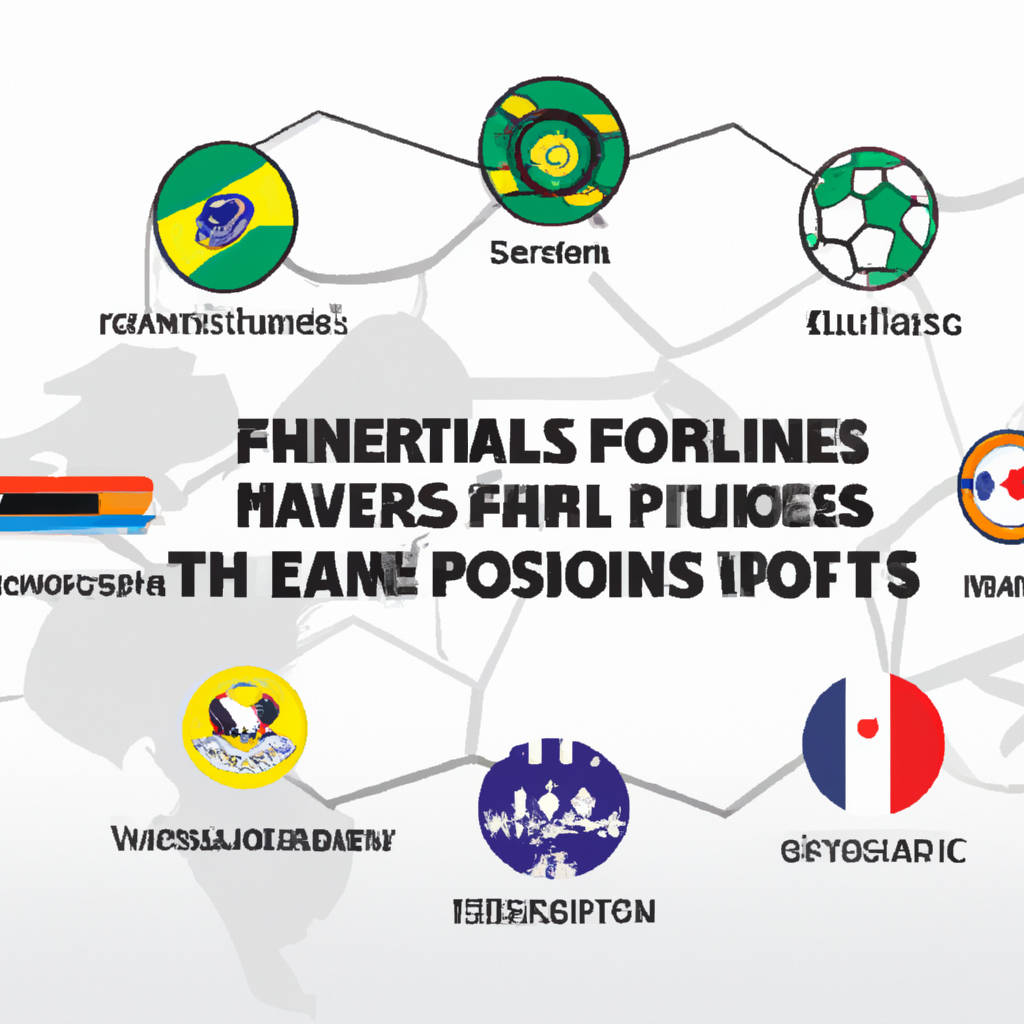
FIFA’s Role in Football Governance
FIFA’s Role in Football Governance
Football, or soccer as it is known in some parts of the world, is undoubtedly one of the most popular sports on the planet. With billions of fans and countless professional teams, it is essential to have an organization that can effectively govern and regulate the sport. Enter FIFA, the Fédération Internationale de Football Association. Established in 1904, FIFA has played a crucial role in shaping the world of football as we know it today.
At its core, FIFA’s primary objective is to promote and develop the game of football globally, ensuring its growth and sustainability. The organization achieves this by establishing and enforcing rules and regulations, organizing international competitions, and overseeing the management of football at all levels. Through its governance, FIFA strives to maintain the integrity and fair play that are fundamental to the sport.
One of FIFA’s most significant contributions to football governance lies in its role in setting and maintaining the Laws of the Game. These laws serve as the foundation upon which each match is played, ensuring consistency and fairness across all levels of the sport. FIFA collaborates with football associations worldwide to review and update these laws regularly, taking into account the ever-evolving nature of the game. By providing a universally accepted framework, FIFA enables players, coaches, referees, and fans to understand and appreciate the game’s fundamentals.
Furthermore, FIFA plays a vital role in organizing international competitions that capture the imagination of football enthusiasts worldwide. The pinnacle of these competitions is undoubtedly the FIFA World Cup, held every four years. This prestigious tournament brings together teams from all corners of the globe, fostering a sense of unity and healthy competition on an international scale. Through the organization of such events, FIFA not only promotes the sport but also enhances cultural exchange and mutual understanding among nations.
Another aspect of football governance that FIFA oversees is the management and regulation of transfer markets. FIFA establishes rules governing player transfers, ensuring fairness and transparency in the process. By setting transfer windows and imposing regulations on transfer fees, FIFA aims to maintain the balance and competitiveness of the sport. This ensures that clubs, regardless of their financial resources, have an equal opportunity to acquire talented players and compete at the highest level.
In addition to its regulatory role, FIFA also contributes significantly to the development of football globally. The organization invests a significant portion of its revenue into grassroots programs, aiming to grow the sport at its foundational level. FIFA’s commitment to nurturing young talent and providing access to football for all is manifested through initiatives such as the FIFA Forward Development Program. This program supports football development projects worldwide, helping to build infrastructure, train coaches, and provide opportunities for aspiring players.
Furthermore, FIFA actively supports the development of women’s football, recognizing the importance of gender equality and inclusivity in the sport. Through initiatives such as the FIFA Women’s World Cup and the FIFA Women’s Football Development Program, FIFA aims to empower women and girls in football, promoting their participation and celebrating their achievements.
In conclusion, FIFA’s role in football governance is undeniably crucial. From establishing the Laws of the Game to organizing international competitions and supporting grassroots development, FIFA ensures the growth, integrity, and inclusivity of the sport. As football continues to capture the hearts of people worldwide, FIFA’s dedication to promoting fair play, unity, and excellence remains at the forefront of its mission. By providing a solid structure for football governance, FIFA enables the beautiful game to thrive and inspire generations to come.
FIFA’s Future Outlook
FIFA, the international governing body for football, has always been at the center of attention when it comes to the future of the beautiful game. With its vast global reach and influence, FIFA’s decisions and actions shape the direction in which football evolves. From the introduction of new technologies to promoting inclusivity and sustainability, FIFA’s future outlook is both promising and challenging.
One of the key aspects of FIFA’s future lies in the continued development and integration of technology in football. Over the years, we have witnessed the introduction of goal-line technology, which has significantly reduced human errors in determining whether a ball has crossed the goal line. This has not only improved the accuracy of decision-making but has also increased the fairness of the game. In the coming years, FIFA is expected to explore further advancements, such as the use of video assistant referees (VAR) in more competitions, which could help referees make more informed decisions and minimize controversy.
Furthermore, FIFA’s future outlook is closely tied to its commitment to promoting inclusivity and diversity within the sport. Football has the power to bridge gaps between cultures, religions, and nations, and FIFA recognizes the importance of ensuring that everyone has equal opportunities to participate and excel in the game. Initiatives like FIFA’s Women’s Football Development Program and the expansion of the FIFA World Cup to include more teams are steps in the right direction. As FIFA continues to prioritize inclusivity, we can expect to see more initiatives aimed at breaking down barriers and encouraging participation from underrepresented groups.
Sustainability is another crucial aspect of FIFA’s future outlook. As the world becomes increasingly aware of the environmental challenges we face, there is a growing demand for sports organizations to adopt sustainable practices. FIFA has already taken steps towards this goal by implementing green initiatives during major tournaments, such as the use of renewable energy sources and the promotion of recycling. Looking ahead, FIFA is likely to increase its efforts to minimize the carbon footprint of football events, encourage sustainable stadium designs, and promote eco-friendly practices throughout the football community.
However, FIFA’s future outlook is not without its challenges. One major concern is the increasing commercialization and monetization of the game.






